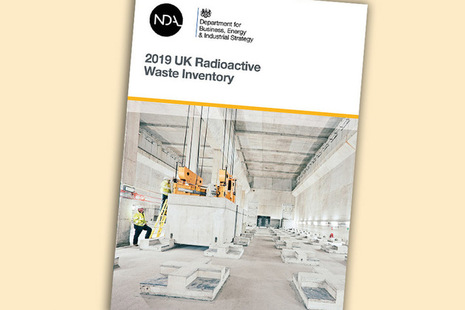WIREDGOV NEWSLETTER ARCHIVE
| Various 5G Huawei related statements, etc. |
|
The British government approved a restricted role for Huawei in Britain’s 5G network. RUSI look at the arguments for & against that decision. As debate continues around how governments should manage the presence of Chinese technology in the rollout of 5G infrastructure, it appears that the UK has finally decided that cyber risk from Huawei’s 5G components can be managed in a pragmatic way. The UK will likely exclude Huawei technology from the most sensitive parts of the 5G network, while allowing it to supply peripheral components such as mobile phone masts and antennae. From a purely technical perspective, this is a practical and realistic decision that adheres to the principles of cyber risk management and reflects the expert view of the UK’s national technical authority, the National Cyber Security Centre (NCSC). It should inform the way the UK manages cyber risk from the globalisation of technology over the next decade & beyond. |
| Researched Links: |
|
techUK comments on the conclusion of the Telecoms Supply Chain Review DCMS: Baroness Morgan’s Written Ministerial Statement to the HoL on UK Telecommunications DCMS: Baroness Morgan's Oral Statement on UK Telecommunications DCMS: Foreign Secretary's statement on Huawei Secure 5G networks: EC endorses EU toolbox and sets out next steps BCS’s response to Huawei announcement This is why the security of 5G hardware/software is so critical to UK’s connectivity/infrastructure! |
|
| And here is another potential ‘risk’ to the UK economy besides 5G & Brexit! |
|
Digital Minister Matt Warman MP has announced plans for new legislation to protect millions of users of internet-connected devices from cyber threats. The DCMS plan will see all consumer smart devices sold in the UK adhere to the 3 rigorous security requirements for the Internet of Things (IoT). These are:
These proposals follow the Regulatory proposals for consumer IoT security consultation through which DCMS engaged with industry on throughout 2019. That outlined Government thinking on how to build on 2018’s voluntary Secure by Design Code of Practice for consumer IoT security. DCMS has now released a comprehensive response to the consultation alongside the proposals which can be accessed here. Government has now confirmed plans to adopt a staged approach to enforcing the top 3 guidelines in the Code of Practice through regulation, it has following industry feedback, agreed to consult further and modify plans in some key areas. The full Government response to the consultation on Regulatory proposals for consumer Internet of Things (IoT) security can be found here. |
| Researched Links: |
|
techUK: DCMS announces new legislation to strengthen consumer IoT security NCSC: Government to strengthen security of internet-connected products This is why the security of 5G hardware/software is so critical to UK’s connectivity/infrastructure! |
| No place for ‘Corporal Jones’ in WHO response |
|
New Coronavirus Outbreak: Concern Is Warranted, Panic Is Not. When it comes to emerging infectious diseases – those newly recognized in humans or in new locations – it is not only what we know that matters but also what we do not know. An outbreak of a new coronavirus first reported in Wuhan, China, which has so far led to more than 500 confirmed cases & multiple deaths across 5 countries (and two continents) has prompted the question from several corners of the world: Should we be worried? Although expert teams coordinated by the World Health Organization (WHO) are working on key questions to get answers as soon as possible, the level of uncertainty is still high. We do not yet know exactly how deadly the disease is, how best to treat those who get sick, precisely how it is spreading, nor how stable the virus is. It is thought that the virus spread from an animal source, but the exact source is yet to be confirmed and the disease is now in human populations and appears to be spreading from human to human. Chinese authorities have confirmed that there is human-to-human transmission. However, it is not yet established whether it is sustained, which would make the outbreak more difficult to control. Likewise, we do not know to what extent the virus is able to mutate and if so, how rapidly. It is important to take a precautionary approach while uncertainty persists. It is also important not to overreact and for measures to be scientifically sound. Concern over this outbreak is due, but panic is not. |
| Researched Links: |
|
Chatham House: New Coronavirus Outbreak: Concern Is Warranted, Panic Is Not DHSC: Wuhan coronavirus - Health Secretary's statement to Parliament FCO statement: British Nationals in Hubei Province FCO advises against all but essential travel to mainland China ScotGov: Wuhan Novel Coronavirus update WAG: Statement from the Chief Medical Officer for Wales about Coronavirus (2019-nCoV) Coronavirus: EU Civil Protection Mechanism activated for the repatriation of EU citizens |
| SME Supplier Locator update... | ||||
|
UK Government and public sector spend with SME’s is continually on the increase and by 2020, it is the stated intent of Cabinet Office that £1 of every £3 spent on government contracts goes to SME’s. Against this ambitious backdrop, the WiredGov Supplier Locator service has been developed specifically to embrace the SME Agenda and provide the ideal platform for SME’s to promote their services, solutions, accreditation and success stories directly to our ever increasing audience across all government and public sector verticals and Tier 1 suppliers.
|
| Only 18% is far too low |
|
Autism affects the way that someone engages with & experiences the world around them. This note provides an overview of policy issues that are relevant to autistic people & their families. Autistic people process their environment differently to non-autistic people, resulting in relative strengths or difficulties, which can vary across contexts and throughout the lifespan. Autism affects everyone differently and is commonly referred to as a spectrum or constellation. It is thought that at least 1% of the world’s population, or 700,000 people in the UK, are autistic and it is recommended that a diagnostic referral be made within 3 months of reporting concerns to a healthcare professional, but only 18% of local authorities in England reported meeting this target in 2018. Many autistic people have co-occurring conditions. The most common are mental health problems, other conditions which affect the developing brain (e.g. learning disability, and attention-deficit hyperactivity disorder), and health conditions such as sleep problems. Autistic people have a lower life expectancy than non-autistic people and are believed to be at a higher risk of suicide. Each of the devolved nations in the UK has an Autism Strategy or other autism-relevant policies, which provide statutory guidance for service provision. In England, reports show that there has been little improvement since 2016 on service provision for autistic adults – the two greatest falls in service ratings have been reported in Employment and Service Planning. Autistic people continue to experience poor health outcomes, and are over-represented in figures on unemployment, school exclusions, institutionalised care and the criminal justice system. Research has suggested that improvement of quality of life, and reduction of service costs, could be produced by providing effective and timely support for autistic people and their families. |
| Researched Links: |
|
Nottinghamshire man’s care package reduced because of financial pressures, Ombudsman finds Europe’s most promising health innovations on offer to North West Coast NHS Digital publishes detailed picture of mental health in England Experimental waiting times data for autism services published for first time Extra £3m a year for Autism services in Wales LGA responds to APPG on autism report NCFE: Tips for teachers – autism in the classroom Autistic people asked for their views to help transform support Today’s children suffer from more ‘pressures’ |
| Like guns, they can be ‘used for Good or Evil’ |
|
Despite their potential to reduce costs, improve efficiency and provide new services, drones may be misused accidentally or for malicious purposes. As the technology has become cheaper & more sophisticated, the use of drones for recreational & commercial purposes has grown, with the Civil Aviation Authority (CAA) reporting a significant increase in the number of permissions obtained for operating commercial drones in the UK. Reports of drone sightings at Gatwick Airport in December 2018 grounded around 1,000 flights for almost 36 hours, affecting more than 140,000 passengers. In 2018, the Government introduced & limits on where drones can be flown and new registration & education requirements for drone operators and pilots. In January 2020, the new Government introduced an Air Traffic Management and Unmanned Aircraft Bill to Parliament that included new police powers for enforcing aviation laws (such as the power to issue a fixed penalty notice for certain drone offences). This POSTnote looks at civilian drones and their applications, focusing on potential misuse and possible responses. Drones can be particularly useful in remote, inaccessible or dangerous settings. Some of the current applications of drones include: photography & filming for research, inspecting infrastructure for wear & damage, and emergency response, including to aid search & rescue and provide surveillance of a disaster area. While they have many benefits, the speed, low cost and increasing flight range & capacity to carry items can also make them attractive to people who may use them maliciously, recklessly, negligently or with criminal intent. Examples of their misuse include causing disruption to other aircraft, intrusion of privacy through filming people without permission, facilitating physical or cyber-attacks, and enabling other criminal activity (such as flying contraband into prisons). |
| Researched Links: |
|
POST: Misuse of Civilian Drones A weapon of mass destruction with indiscriminate after-effects |
- General News, Charities & Third Sector
- Health, Social Care and Homelessness
- National & Devolved Policy Statements & Initiatives, Legislation / Legal
- Consultations
- Reports and Other Publications not listed in other sections
- EU Legislation, Initiatives, etc.
- ICT and Data Management / Security
- Business and Other Briefings / News – (Government Funding Opportunities)
- Forthcoming Events










